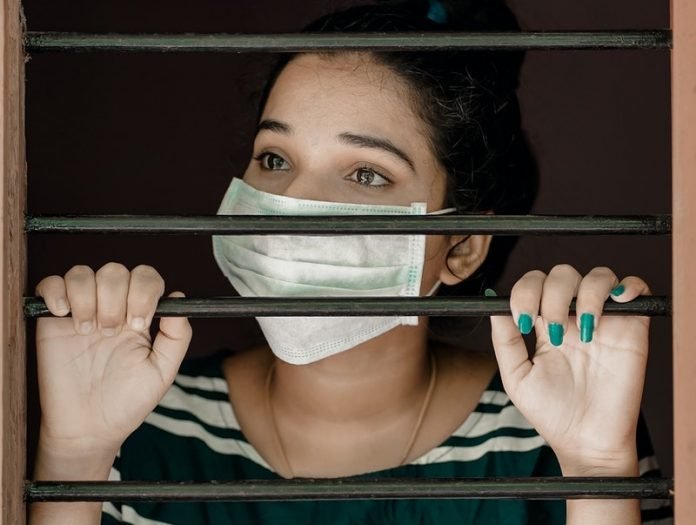
In three new studies, researchers found the COVID-19 pandemic led to higher levels of depression, anxiety, suicidal tendencies and psychological trauma among American adults during the early months of its spread.
The research was conducted by the University of Arkansas sociologists.
In the first study, using an internet survey distributed in the last week of March that sampled 10,368 adults from across the country, researchers have sought to better understand the sociological and psychological effects of the pandemic.
The common denominator in their findings is fear, coupled with a range of social vulnerabilities, consistently and significantly predict a range of mental health outcomes.
Additionally, as they originally hypothesized, it appears as though individual fear is higher in those places where there is a higher concentration of confirmed COVID-19 cases and/or a higher death rate.
The researchers found that on average, survey respondents scored one point higher than the cutoff for clinical significance on a commonly used depression scale.
Nearly a third of respondents were much above that level.
They also found elevated depressive symptoms among socially vulnerable groups including women, Hispanics, the unemployed, and people who report moderate to high levels of food insecurity.
In a second study, the researchers found that 15% of all respondents were categorized as high risk for suicide.
Blacks, Native Americans, Hispanics, families with children, unmarried and younger respondents scored higher on a symptom assessment of suicide risk than their counterparts, and compounding factors such as food insecurity and physical health symptoms increased the risk among respondents.
The third study examined the fear and mental health consequences of the pandemic. When researchers asked respondents how fearful they were of COVID-19 on a scale of one-to-10, the average answer was seven.
But fear of the disease and its consequences is not evenly distributed throughout the country, they found; it was highest in areas with a greater concentration of COVID-19 cases and among the most socially vulnerable groups.
In short, fear of the virus, and subsequent mental health problems that follow, remain entangled with the types of policies and measures used to combat the virus, both now and as recovery continues to unfold and the United States begins to slowly move forward.
The team says all three papers are part of an initial, early push to understand the sociological impact of COVID-19.
One author of the study is Kevin Fitzpatrick, the University Professor of sociology.
The study is published in Suicide and Life-Threatening Behavior, Anxiety and Depression, and Psychological Trauma.
Copyright © 2020 Knowridge Science Report. All rights reserved.



